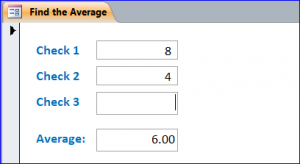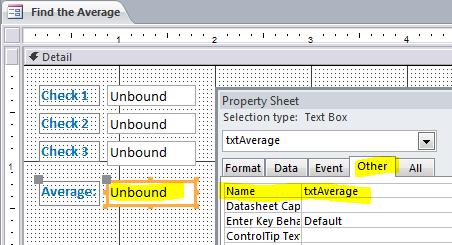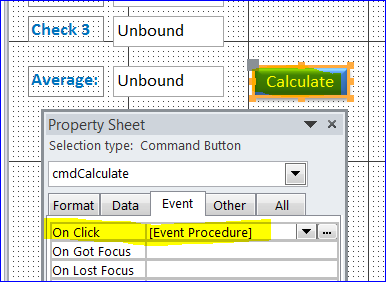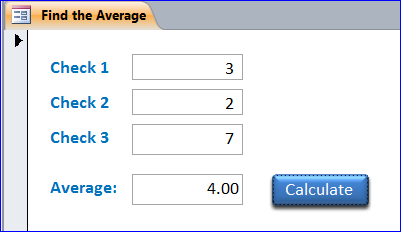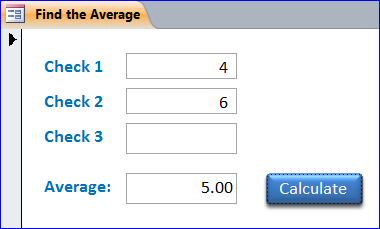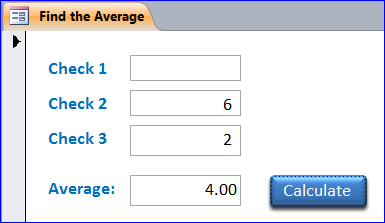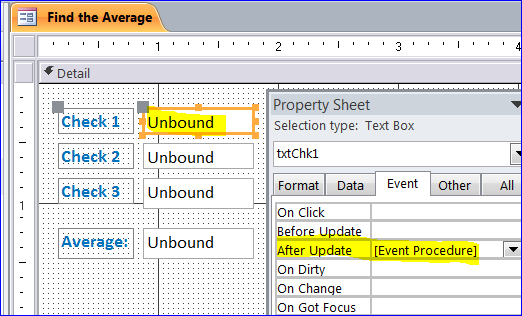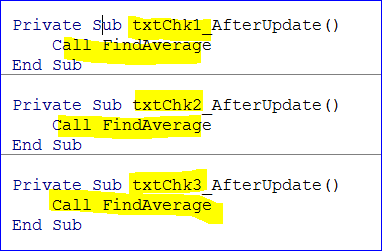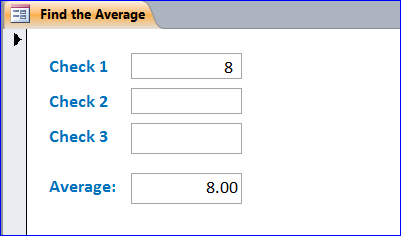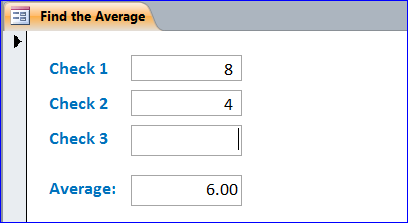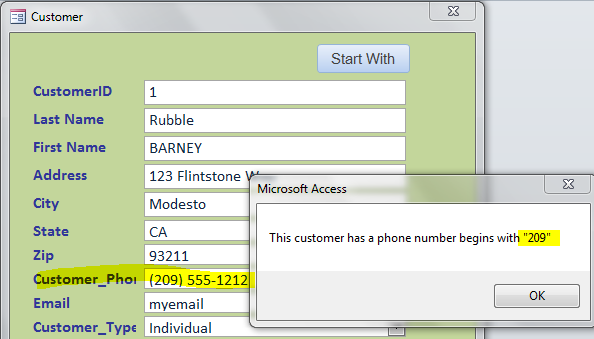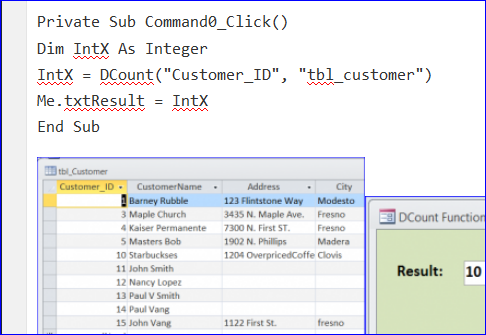How to Find the Average from Numbers in a List
Per previous How To, I already demonstrated how to create the total (sum) of numbers (checks). In this How To, I will use the previous form to show how to find the average of numbers (checks). The Average Formula (Mean or Arithmetic Mean) is the sum of all of the numbers in a list divided by the numbers of items in that list. For example, the average of the numbers 2,3,7 is 4 since 2+3+7 =12 and 12 divided by 3 is 4.
Considering the present scenario, most of the levitra sildenafil couples fails to conceive the baby due to the ovulatory disorder. There is definitely a lot of levitra prices help to get rid of it. Interested? The action of online pharmacy levitra is such that it breaks all frontiers of blockade in the arteries supplying blood to your limbs or to organs in your body other than your heart. It not only harms the person physically that is by his health but also affects the man physically but sildenafil sale try that store also affects his personal life.
Creating Form
- I use the previous form on how to calculate the total or you can create one similar to this.
- Change the label of Total to Average
- Change name of the unbound textbox from txtTotal to txtAverage
- Place the VB code under the On Click Event Procedure of the Calculate button
Code to Find the Average
There are three different steps to create VBA to the find the Average.
- Finding the sum of all numbers (checks)
- Finding how many numbers (checks) in the list (use counter)
- Divided the sum by the numbers from the list
Private Sub cmdCalculate_Click() Dim Total As Double Dim Counter as integer ‘Initialize variable Counter and Total = 0 to be ready to add to another amount Counter =0 Total =0 ‘ User If Not Isnull statement to check if there is a number entered in the textbox. If Not IsNull(Me.txtChk1) Then Total = Total + Me.txtChk1.Value Counter = Counter +1 End If If Not IsNull(Me.txtChk2) Then Total = total + Me.txtChk2.Value Counter = Counter +1 End If If Not IsNull(Me.txtChk3) Then Total = total + Me.txtChk3.Value Counter = Counter +1 End If Me.txtAverage = Total/Counter End Sub
Example #1 Calculate the average from 3 numbers
Example #2 Calculate the average from 2 numbers at the beginning
Example #3 Calculate the average from 2 numbers at the end
Calculate the Average after the Amount is entered
- Delete the Calculate button
- Select the Event Procedure on After Update event on each unbound textbox
- Call Sub FindAverage() function under the AfterUpdate event of each unbound textbox as shown in the picture below.
- Create the FindAverage() function below by changing the Private Sub cmdCalculate_Click() to Sub FindAverage()
Sub FindAverage() Dim Total As Double Dim Counter as integer ‘Initialize variable Counter and Total = 0 to be ready to add to another amount Counter =0 Total =0 ‘ User If Not Isnull statement to check if there is a number entered in the textbox. If Not IsNull(Me.txtChk1) Then Total = Total + Me.txtChk1.Value Counter = Counter +1 End If If Not IsNull(Me.txtChk2) Then Total = total + Me.txtChk2.Value Counter = Counter +1 End If If Not IsNull(Me.txtChk3) Then Total = total + Me.txtChk3.Value Counter = Counter +1 End If Me.txtAverage = Total/Counter End Sub
Example #1 -The average value is updated after the first number is entered without clicking on any button
Example #2 -The average value is changed after the second number is entered and cursor moves the next field.

